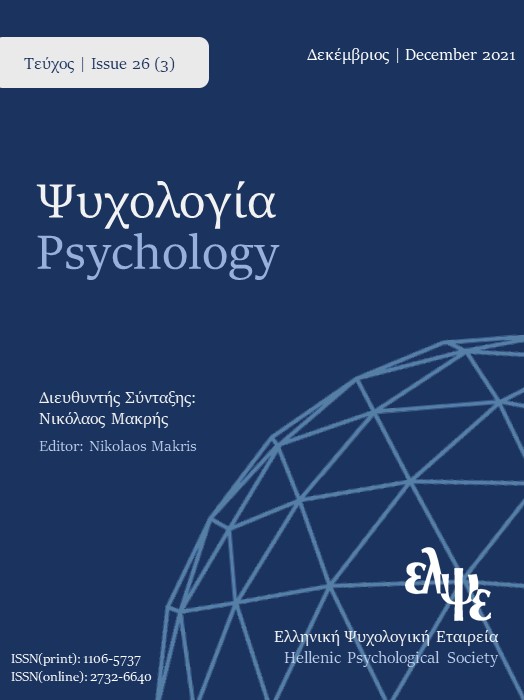Coping strategies, perceived threat and sources of social support in adults during COVID-19 pandemic

Abstract
This study examines the coping strategies, perceived threat and the sources of social support reported by adults after the COVID-19 restriction measures in Greece. It is the Greek contribution to an international study that is conducted in a number of European countries and USA, Canada, China, Israel etc. The sample of the Greek study consisted of 2.137 (1.617 men and 518 women) adults (almost 65% was between 18 and 40 years old). The participants completed questionnaires on psychosomatic health and behaviour. In this paper the results regarding the coping strategies were presented using the scale of Carver (1997), as well as the following scales: Social Support (Caplan et al., 1980), Avoidance/Positive Behaviors (Greenglass, 2019) and Coronavirus Threat Scale (Marjanovic et al., 2013). Initial results showed that a large percentage of the sample reported coping strategies that led to emotion regulation and problem solving. Emotion regulation and avoidance behaviours were statistically significant predictors of perceived theat. Moreover, analysis showed statistically significant gender differences in these three coping strategies, with men reporting more frequent use of those. It was also found that participants with lower education reported the denial strategymore frequently. Implications of the results in view of the recent models of coping strategies in times of crisisare discussed.
Article Details
- How to Cite
-
Antoniou, A. S., Greenglass, E., Dimopoulos, M. A., Chrousos, G., Papageorgiou, C., & Tountas, Y. (2022). Coping strategies, perceived threat and sources of social support in adults during COVID-19 pandemic. Psychology: The Journal of the Hellenic Psychological Society, 26(3), 165–180. https://doi.org/10.12681/psy_hps.28912
- Section
- SPECIAL SECTION

This work is licensed under a Creative Commons Attribution-ShareAlike 4.0 International License.
The journal PSYCHOLOGY adopts a Platinum open-access policy. Submission, processing or publication costs are waived by the Hellenic Psychological Society. Papers published in the journal PSYCHOLOGY are licensed under a 'Creative Commons Attribution-ShareAlike 4.0 International' licence. The authors reserve the copyright of their work and grant the journal the right of its first publication. Third-party licensees are allowed to use the published paper immediately after publication as they wish, provided they retain the defined by the license copyright formalities, regarding the reference to its author(s) and its initial publication in the journal PSYCHOLOGY. Moreover, any adjusted work should be shared under the same reuse rights, so with the same CC license.


